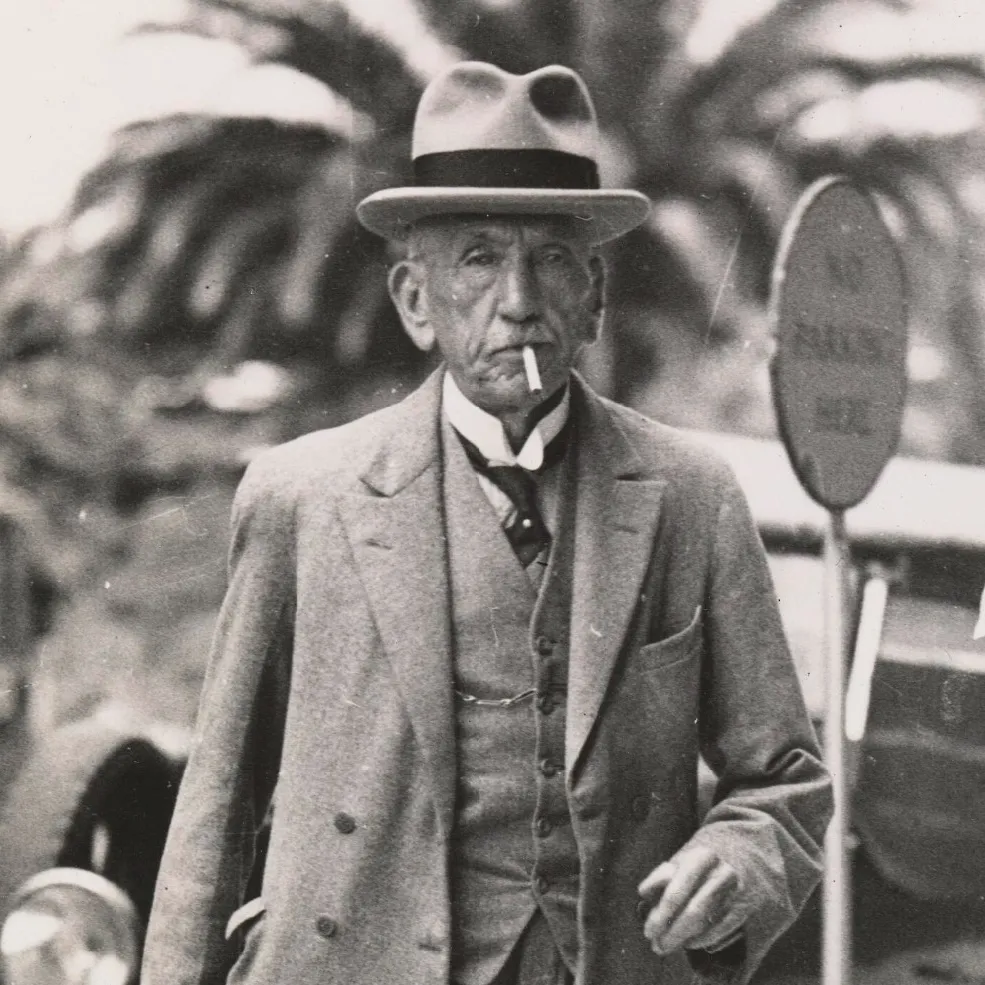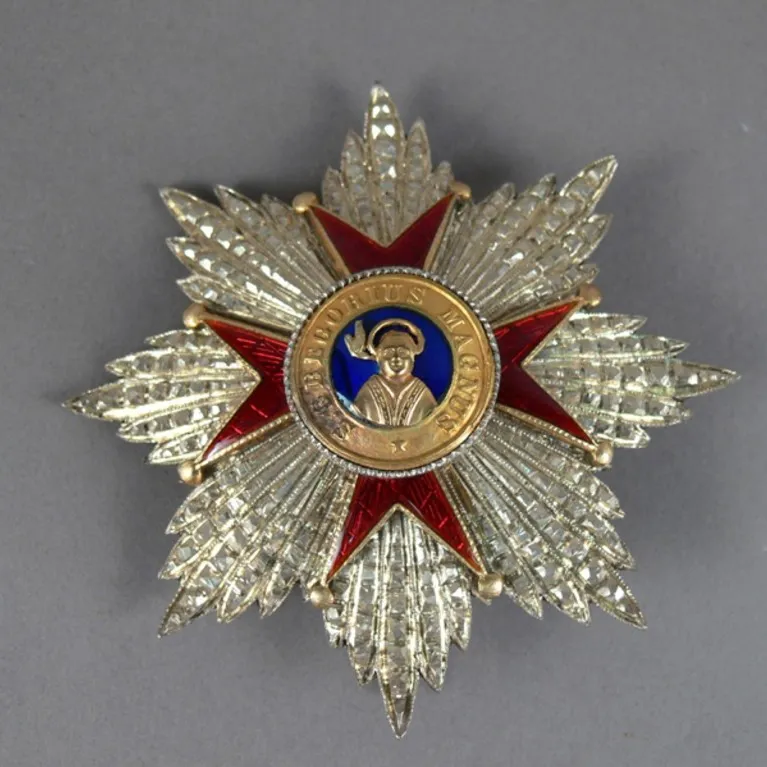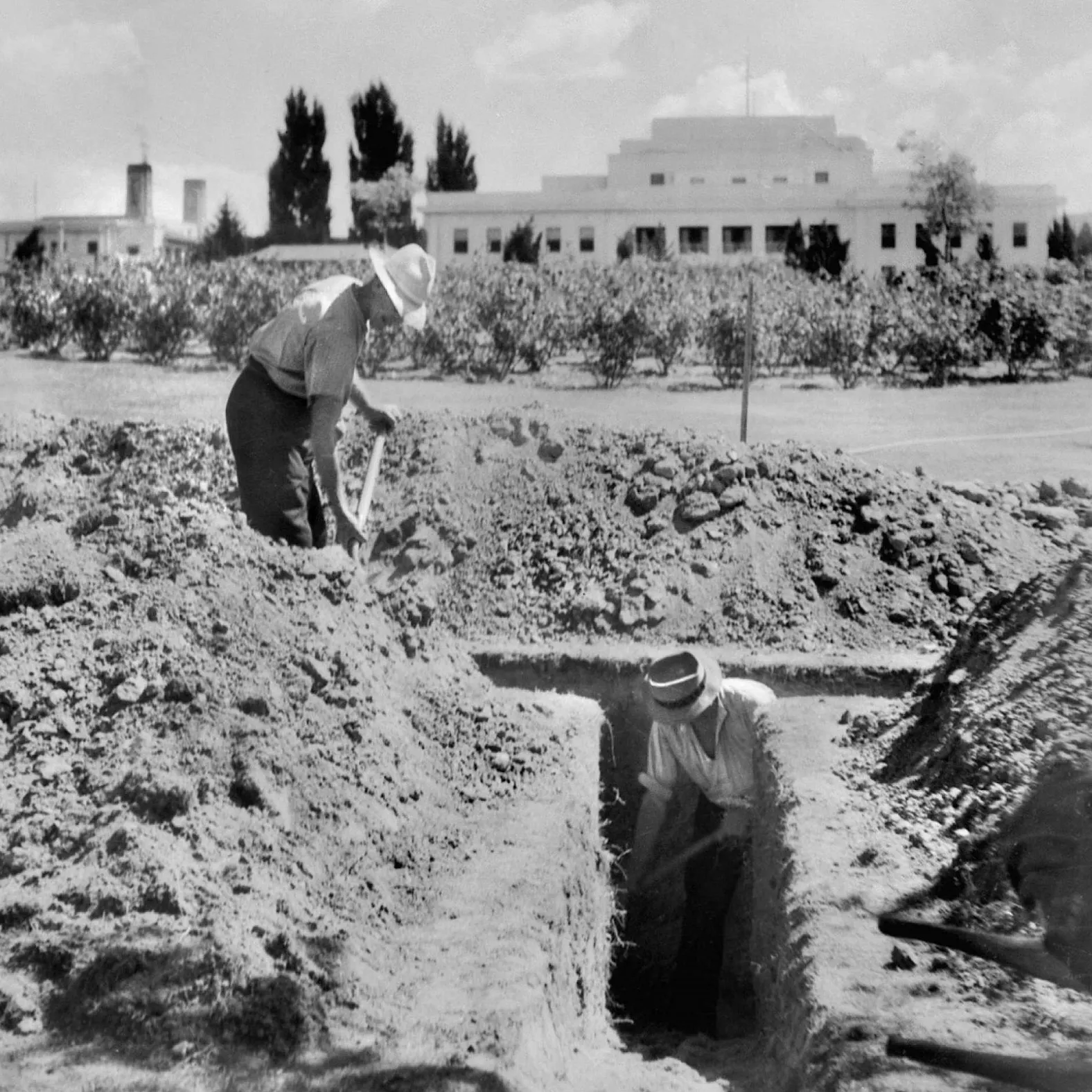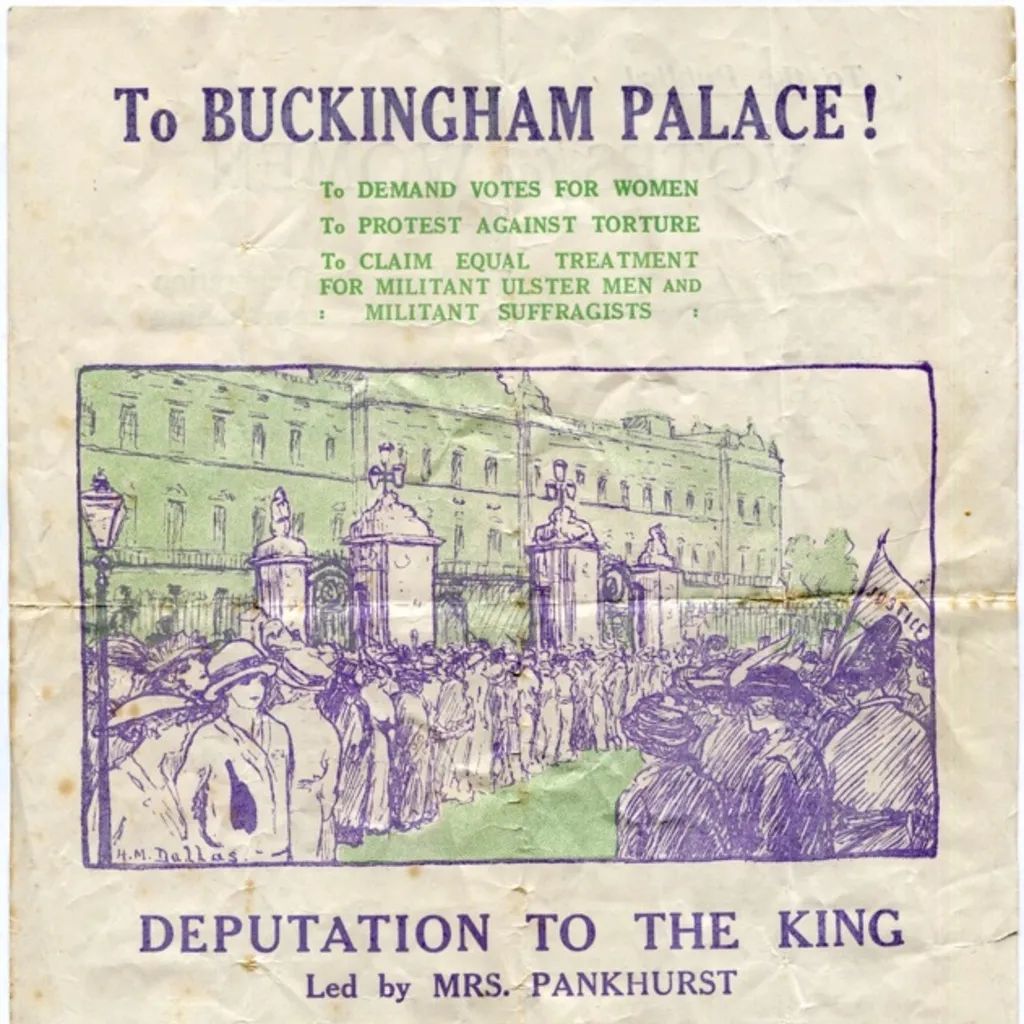Journalist and author Paul Daley reflects on Edward Gough Whitlam AC QC
- DateTue, 21 Oct 2014
The Museum of Australian Democracy at Old Parliament House mourns the passing of Edward Gough Whitlam, twenty-first prime minister of Australia.
In 2002 in a speech given at Old Parliament House Mr Whitlam identified 'contemporary relevance' as an 'overarching principle and a unifying theme' that had run consistently through his long and distinguished political career. That concern, together with his unwavering commitment to Australia’s system of parliamentary democracy, was the hallmark of his leadership of both the Australian Labor Party and, from 1972 to 1975, his leadership of our nation.
Mr Whitlam’s father was a senior public servant who became Commonwealth Crown Solicitor in 1936. Although born in Melbourne, Gough Whitlam spent much of his youth in Canberra, which provided him with an early introduction to politics, first visiting Parliament House on a school excursion in 1928. It also created a lifelong belief in centralism, of the importance of the national government.
In 1935 he enrolled at St. Paul’s College at the University of Sydney, completing his Arts degree in 1937 and immediately enrolling in Law. His studies were interrupted in 1942 when he was called up for service in the RAAF and were completed in 1947, two years after his discharge.
Whitlam first became politically active during the Second World War, distributing literature for the Australian Labor Party during the 1943 federal election and supporting the 'Fourteen Powers' referendum of 1944, which would have expanded the powers of the federal government. The failure of this referendum convinced Whitlam of the need to modernise the Australian constitution and he set out to do so.
He entered politics in 1952 as the Labor Member for Werriwa, a seat he held until 1978. It is here perhaps that his commitment to contemporary relevance emerged in the long struggle to reshape the Australian Labor Party into one that looked forward to meeting the needs of Australia in the 1960s rather than looking backwards to the battles of previous decades. Whitlam became leader of the Australian Labor Party in 1967, and led it to victory in the 1972 election after 23 years in opposition.
The Whitlam Government’s reform program was sweeping. Its achievements were significant: conscription ceased, legal aid established, university fees abolished and the Schools Commission created to allocate funds to schools. Universal health care was established, and the Family Law Act provided for no-fault divorce while the Racial Discrimination Act caused Australia to ratify United Nations conventions against racial discrimination. In August 1975, Whitlam gave the Gurindji people of the Northern Territory title deeds to part of their traditional lands, beginning the process of Aboriginal land reform. The next month, Australia granted independence to Papua New Guinea. 'Advance Australia Fair' became the country’s national anthem. The Order of Australia replaced the British honours system in early 1975.
His program was also contentious. Where Whitlam, his government and its supporters saw ‘modernisation’ and contemporary relevance,’ their opponents saw destructive change to political and social structures that had great merit; they saw cultural and financial irresponsibility. This, combined with lack of internal discipline within the government and deteriorating economic conditions created a sense of crisis which was brought to a head with the dismissal of Whitlam and his government by Governor-General John Kerr on 11 November 1975.
It is a testament to Whitlam’s commitment to the system of parliamentary democracy that although he could not accept the correctness of his dismissal he did accept that the resolution to it lay in the peoples’ hands at the resulting general election, and furthermore accepted the election’s outcome, which returned he and the Labor Party to the opposition benches. Whitlam remained Leader of the Opposition until 1977, when he resigned from parliament.
On leaving parliament Mr Whitlam took up various academic positions, and was appointed Ambassador to UNESCO, based in Paris. He served for three years in this post, defending UNESCO against allegations of corruption. In 1985, he was appointed to Australia’s Constitutional Commission and was appointed chair of the National Gallery of Australia in 1987. He also served as Chair of the Australia-China Council from 1986 to 1991.
During this period Mr Whitlam also maintained his interest in Old Parliament House, the building in which he had served his entire career as a member of parliament. In December 1992 he and another former Prime Minister, John Gorton, re-opened Old Parliament House as a heritage site and proud symbol of Australia’s evolution as a democratic nation.
Mr Whitlam remained active in public life until well into his 90s, and often in conjunction with his wife Margaret, a public figure in her own right, until her death in 2012.
At all times throughout his long and significant political career Mr Whitlam maintained his conviction that 'social and economic reforms can be achieved through the system of responsible Parliamentary Government.'







